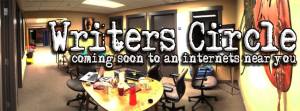“Then I know what I must do. It’s just… I’m afraid to do it.”
-Frodo Baggins
Been a while since the last time I did one of these, hasn’t it? Yeah, well, there’s a reason. Because the last time I talked about Quarter Century, and the play after that… I’ve been putting it off and putting it off, because to continue this series meant re-reading what some claim was the worst thing I ever wrote. And man but I wasn’t sure I wanted to do that. But there’s no point in doing this if I start holding back no, so here we are. Yesterday, I cracked open a script called Quest for the first time in nearly eight years.
Are you ready for your nostalgic look at past works to get real? Because today we’re talking about failure. Pure, unadulterated failure. Sure, I had bad things to say about Illuminati in Love, because who wouldn’t, and yes, I had to resort to a speed round to sum up everything that was bad about The Course of True Love and the Curse of the Jade Monkey (why is the title so god damned long), but here’s the thing… every script I’ve written about so far?
They all got staged.
Hell, some of them got staged twice. I not only decided Jade Monkey was worth a second go, I took it to a Fringe festival. But not this one. This one never made it past the first workshop, and frankly shouldn’t have made it that far, but my first-draft readers broke out the kid gloves and I learned of my folly too late.
Let’s get into it.
What’s it about?
“WE NEED YOU TO DO THE THING, AVERAGE GUY. ONLY YOU CAN DO THE THING.” -mentor figure, every goddamn movie
–Lindsay Ellis
21st century con man Tobias Rose and his partner in crime Freddy Hale steal from the wrong people, and get dragged into the final struggle of a Tolkien-esque war between good and evil, one in which both sides have begun to fade as wonder and magic were worn away by science and reason.

After stealing both the MacGuffin gem (it’s actual name, the Gem of Anarra, wasn’t less silly, so let’s call it what it was) and a fairy who’s been imprisoned in a PDA (remember those? They used to be a thing!), Tobias’ colleague and occasional lover Pauline is killed under mysterious circumstances, and when Tobias tries to find out who killed her and why, he ends up crossing paths with the trapped fairy’s friends: two sorcerers (Victor and Natasha), and the last of the elves (Ellianna), who are trying to stop the Adversary (basically Sauron from Lord of the Rings, and equally unseen) from regaining his lost power and drowning the world in a new style of dark magic, one fed not by wonder but by fear and cynicism.
While at first Tobias only cares about finding and killing Pauline’s murderer… well, that and getting enough money to pay off a debt to a mobster… Freddy’s nagging and a recurring hallucination of Pauline that acts as his conscience drive him to use his con artist skills to aid Ellianna and company. Also he thinks Ellianna is pretty cute, because why not at this point.
Also the bad guys are all orcs. Or rather, are all descended from orcs, but distantly enough that they’re basically just mob goons: strong and dumb.
So why’d that happen?
“Not with ten thousand men could you do this. It is folly.”
-Boromir
A few reasons. The fairy trapped in the palm pilot was from a dream I had. The fairy was stuck inside the PDA, but since I’d rescued her from her captors, she was willing to try and help me hook up with her friend the elf, but did advise this was a bad idea due to the elf’s baggage. For good or ill (mostly the latter), this all ended up in the play.
As to the rest… in late 2001 and early 2002, I could watch whatever I wanted at Westhills theatre for free. But there wasn’t much playing. So what I ended up doing was rewatching two movies over and over: Fellowship of the Ring and Ocean’s 11. As such, a sketch idea wormed its way into my mind: what if instead of Gandalf the Grey, the Fellowship of the Ring was led by Danny Ocean? While it soon became clear Ocean’s Fellowship wasn’t going to be worth writing down, I guess the notion got stuck in my head, and a few years of loving con man movies later… this happened.
How’d it turn out?
“You folded with a focus and intensity normally seen only in successes.”
-Ray Smuckles
Short answer is “not well.”
For a long time now, I’ve held this one up as a cautionary tale. At the workshop, it was generally agreed to be one of the worst things I’d done (and wasn’t that fun to hear in a group setting), but until then? I had no idea I’d gotten it that wrong.
But I see now. Time, distance, and practice have shown me why Quest failed so utterly.
For starters, it’s like 90% exposition. Ninety percent. That is not okay. Alright, that percentage is a rough estimate at best, but the fact is, people spend more time standing around talking about the premise and the world and what’s been happening than actually doing anything. For something that’s trying to blend Lord of the Rings Ocean’s 11, there is barely any action and staggeringly little charm.
And despite all this exposition, nothing is developed. Why are Tobias and Freddy so close partners? If Tobias is already willing to move on and flirt with Ellianna, how could Pauline’s death have affected him so deeply that he’s imagining her talking to him? We know what the Adversary’s plans are, but do the good guys have their own plan, or is “stopping the bad guy” really the sum of their ambition? I don’t know, and I wrote this bloody thing!
The “curse your sudden yet inevitable betrayal” moment happens during the traitor’s second scene. We have just met this person, how could we possibly have anything invested in whether or not they’re a traitor? In fact, it’s hard to get invested in anyone. They show up, have a stock set of characteristics (Victor’s sarcastic. Really reaching new heights there, Young Me), three of them have a token sad story from their past which end up just being more chunks of exposition in a story drowning in them… I don’t think a potential audience was ever given a concrete reason to care about Tobias, or have any investment at all in what he does. And since he’s driving the story, that is a problem.
The plot is surprisingly barren and moves way too fast. Thirty minutes after finding out magic is real, Tobias knows how to break a seemingly unbreakable curse, with no more explanation than a quick joke about “There’s always a cheap knock-off in Chinatown.”
Somebody at the workshop said “You need a comic relief character.” I said “I thought I had one.” Tells you how funny Freddy ended up.
Everything interesting happens offstage, and is described to the audience so we can quickly move to our next burst of exposition. The final con to defeat the Adversary and win the day is full of holes. Tobais is only the smartest person in the room because everyone else is so reliably stupid.
It is a failure on every level. The world building is sloppy, the characters are cobbled together and uninteresting, it’s a story about the end of the world yet doesn’t feel like it has any stakes, everything, everything, is told rather than shown… and I misused an apostrophe on page 13. It is an eternal reminder that no matter how much I’ve learned, no matter how much I grow, it is still possible to utterly and completely shit the bed.
And yet… and yet now that I’ve cracked it back open, I kind of want to save it.
Would you stage it again?
“You lost today, kid. But that doesn’t mean you have to like it.”
-Fedora, Indiana Jones and the Last Crusade
Or in this case, “Would you allow it to see the light of day,” and the answer remains no, absolutely not, not like this. Like I said, I kind of want to save it, but there isn’t enough in this script that works to build a second draft. The fact is, when the first readers were trying to softball their responses, they were right: this story does not work as a stage play. There’s so much exposition, backstory on the world, its rules, and the characters that’s needed for it to make sense, but right now it’s all happening instead of actually developing the characters, the story, or the stakes. Right now everything interesting happens offstage because it all felt too hard to do in live theatre.
Maybe the story can work. Or at least elements of it. The ancient war of light and dark stuck in an era where magic is dying, a la Flight of Dragons or Carnivale, could have some legs. I might have to lose the elves and the orcs/orc descendents, though, not sure how well that played. Well, definitely the orcs. That did not work at all.
Tobias would need to have some actual charm. Ellianna would need a personality. Freddy’s comic relief would have to actually be funny. The haunted-by-imaginary-Pauline thing has to go, because the idea that anyone might see that as anything but a knock-off of Gaius Baltar from Battlestar Galactica was a pipe dream. But more than anything, to not be terrible, this story would need to have more room to breathe. Time to develop. Time to earn the audience’s interest. And a stage play ain’t gonna get it done. A novel, maybe. A TV series? Definitely.
Sadly, I have at least two other series I want to see exist in some form, and they’re both higher priorities.

Which means the notion of how this story could be told well will just have to lurk around the back of my head for a while. Which is how I got into this mess in the first place.
Repeated theme alert
- Man and woman cannot be friends: Not sure if I should include this one, since Tobias and Ellianna were never what you’d call “friends,” but their end-of-play hook up is just SUPER tacked-on and brutally unearned.
- Something something pop culture reference: The Pauline thing wasn’t actually stolen from Battlestar Galactica. It was stolen from Garth Ennis’ 1997 Unknown Soldier graphic novel miniseries, in which the lead character is thrown into a globe-trotting conspiracy centred around nigh-mythological black ops agent Codename Unknown Soldier because a pretty co-worker smiled at him, and was almost immediately killed. He then hallucinates her talking to him throughout the story. Not… not sure that makes it better.
- Something something pop culture reference part two, Secret of the Ooze: Someone refers to the age of magic as being an age of “nobility and cruelty.” That’s an homage to a similar monologue that opens the first episode of Carnivale. “Before the beginning, after the great war between Heaven and Hell, God created the Earth and gave dominion over it to the crafty ape he called man. And to each generation was born a creature of light and a creature of darkness. And great armies clashed by night in the ancient war between good and evil. There was magic then, nobility, and unimaginable cruelty. And so it was until the day that a false sun exploded over Trinity, and man forever traded away wonder for reason.” That monologue shaped a lot of my vision for the world of this story, and the decline of magic.
- “Let’s swap backstories for fifteen minutes like that’s not pacing Kryptonite!” This describes more of the script than it doesn’t.
Next time… from my worst first draft to my best, as I experiment with full-on farce.
